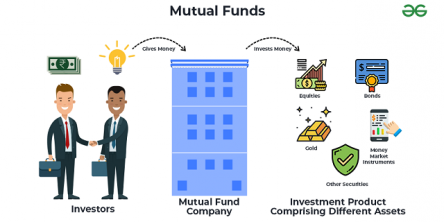Know Your Financial Terminology

One of the biggest problems people have with their finances in today’s economy is their lack of understanding of the subject. Financial terminology is designed to be confusing, and bank employees speak in their monetary argot, just so they get the sale that suits them, not the product or service that suits you.
Okay, maybe it is not that cynical, but we can agree that there are far too many terms, variations and categories of finances to fully understand. It can be helpful to your financial security if you took the time to obtain a better understanding of what your bank account or your savings account entails exactly.
Here is a quick breakdown of some of the more common occurrences that you may come across.
Standing Order
One of the terms that you are likely to hear in a bank, particularly if you are paying bills. A standing order is a way in which you can regularly pay companies etc. that will be requiring payment from you on a weekly/monthly basis.
It is very similar to a direct debit, but you set up a Standing Order yourself, and it works on your terms. You control how much will be paid, when it will be paid and when it should finish. Though, as with a direct debit, you are also responsible for making sure there is enough money in the account to pay the recipient.
Credit Rating
Something that is going to be with you the rest of your life is your Credit Rating or Credit Score. You will need to know what this is and how it works particularly if you are looking to borrow money or take out a line of credit.
Fundamentally, your credit rating is a score based on your ability to meet your financial obligations. It is derived from your previous dealings and other factors such as your employment status.
Banks used to work in the way of personal relationships or reputations was enough to take out a loan, but no longer. If you want a loan, a credit card, a mortgage, anything along these lines, you’re going to have to have a polished credit rating, otherwise, you may be turned away.
Compound Interest
If you’ve got a savings account or an existing loan, for example, you’ve probably heard the term compound interest – it’s what increases your savings, or increases your loan.
For a savings account, it is calculated by finding the sum of all the money you have paid into your account (your capital) year on year (usually.) So, interest for year 1 is based on the running total for year 1. Year 2, the interest is based on the running total of years 1 and 2, and so on.
It works the same for credit. It takes what you owe, applies the interest, then the next period it is added to the sum of those two.
It can be difficult to grasp, and there are formulas used to calculate these totals, which you might want to take a closer look at.
Secured & Unsecured
You might hear these if you’ve applied for a loan, but you might not have known the difference, which is understandable.
When borrowing money, there are two options, you guessed it, secured and unsecured. So, a secured loan is when you are a homeowner and the loan is put against your house, ie it is used as collateral. An unsecured loan is when you are not a homeowner and this is where the credit rating we talked about earlier will come into play.
This is, of course, a straight forward explanation, but there is more out there explaining the differences between secured loans and unsecured loans.
Planned and Unplanned Borrowing
These terms are usually heard when taking out some sort of credit line, such as a personal loan, but, more commonly with overdrafts.
Your overdraft is a benefit of your normal bank account, where, you have an amount available beyond what you actually have in the bank. When it is planned borrowing, this is an amount agreed between you and your bank.
However, unplanned borrowing is when you go over what you have in your account, below zero, essentially, or beyond your agreed amount. Charges are normally applied to these, but, a lot of modern banks give you a grace period to pay off your overrun.
These are just some of the more common terms that you may encounter on your fiscal journeys, but as I said, there are much more out there. It really is worth familiarising yourself with the ones that you feel you may come into contact with at any point in the future.
Similar Articles
Save money on home & business essentials with bulk wholesale! Discover tips, product categories, and deals to maximize your savings.
Loud budgeting has taken over social media, with people openly discussing spending habits, saving strategies, and financial struggles. While this trend encourages transparency, it also adds pressure to meet certain expectations
Securing your financial future has become a necessity in today's world, and investing in mutual funds is one of the most popular ways to grow your wealth over time. Managing your money and investing in potential funds has become convenient and seamless with the help of the right online platforms
Gone are the days when you had to carry a wallet full of money when traveling somewhere. Now, cashless travel has become a reality due to technological developments, making it easier for travelers to manage their cash when they’re out and about.
Discover how ACH and eChecks revolutionize payments—offering cost-efficiency, security, and convenience while addressing cybersecurity challenges and future trends.
NPS (National Pension Scheme) is a popular option for those looking to save for retirement and get a steady income through an annuity after retirement. It is supported by the Indian Government and is based on contributions made regularly. The final pension will depend on the money that you build by the time of retirement and the portion used to purchase an annuity.
Debt collection can be stressful for both the debtor and the creditor. Howеvеr, undеrstanding thе tactics commonly usеd by dеbt collectors can help you protеct yoursеlf from potential lawsuits. Whether you’re a business owner collecting unpaid invoices or an individual dealing with personal debt, being informed about the legal and ethical boundaries of debt collection is crucial.
In the fast-paced world of international trade, how can businesses ensure smooth and efficient movement of goods across borders? The answer lies in expert facilitation services that specialize in navigating complex regulations and optimizing supply chain processes.
Managing cash flow is critical for any business's survival and growth. It involves tracking the money coming in and going out of the business to ensure it can meet its financial obligations.









